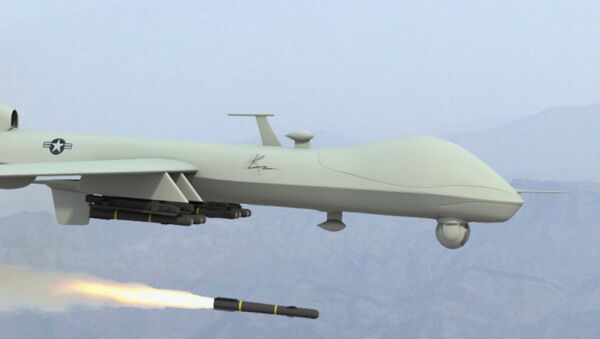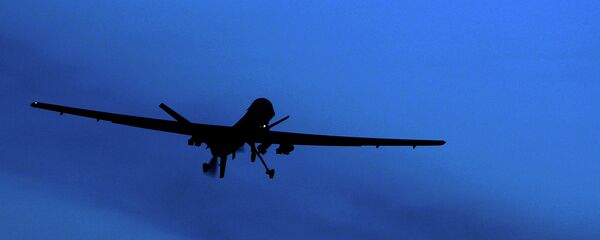On Thursday, former drone operator Brandon Bryant testified before a German parliamentary inquiry committee about Germany's role in the US drone program.
Earlier in the day, in an interview with German TV station Das Erste, Bryant said he has logged 6,000 hours flying drones, roughly 120 hours of which were strikes. The remaining hours were mostly spent conducting surveillance.
Bryant operated drones flying in Iraq, Afghanistan, Pakistan, Somalia and Yemen – "areas where we were not even at war officially," he said.
A strike mission can involve up to 100 people, he said, and the crew gets permission to fire on a target from the Joint Terminal Attack Controller (JTAC).
The JTAC "sits in front of a screen" watching a video feed, Bryant said, and could be in the room with the rest of the flight crew or thousands of miles away or anywhere in between.
"We had JTACs that were sitting in the US while the drone is thousands of miles away. They could be in the Pentagon. Some jerk looking at a laptop and be like, 'Oh, that's a bad guy. Shoot him.'"
Or the JTAC could be at Ramstein Air Base, a US Air Force base in southwestern Germany. The site serves as headquarters for the United States Air Forces in Europe — Air Forces Africa.
"Ramstein is absolutely essential to the US drone program," Bryant said. "All information and data go through Ramstein. Everything. For the whole world. Also for the CIA operations."
When carrying out strikes in an unofficial war zone, Bryant said, the CIA would instruct the operator to turn the camera towards the body of the drone so they could not see what was happening on the ground.
Operators who may have objected were strongly discouraged from speaking up. Anyone who does come forward is “going to get a lot of shit,” he said.
"I asked a lot of questions and no one wanted to hear my shit."
Bryant eventually left the drone program and the Air Force because he was "frustrated anyway about how our superiors were treating me and my peers," who were "supposed to function and never ask questions."
"Then there was this moment while we were hunting for Anwar al-Awlaki, an American citizen. I suddenly realized that by doing what I was doing I was going against the American Constitution which I had sworn to protect. That was when I decided I had to get out."
Awlaki, an American-born al-Qaeda cleric, was killed in a US drone strike in September 2011 in Yemen.
"The US pretended the whole time to be Germany's ally but they were just using Germany," Bryant said. "I want to represent something good which justifies Germany's trust in my country. I want to show that there is another way."




